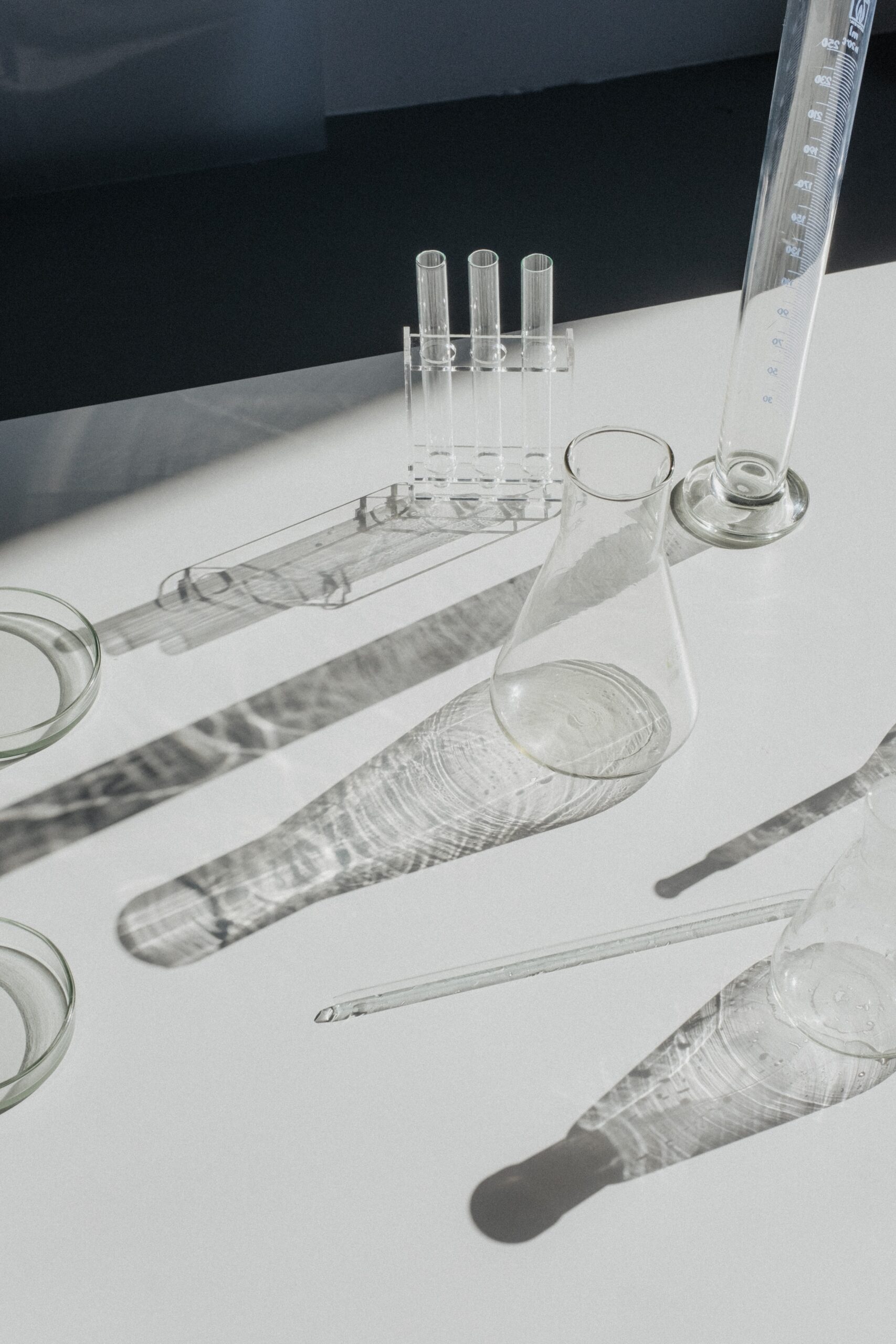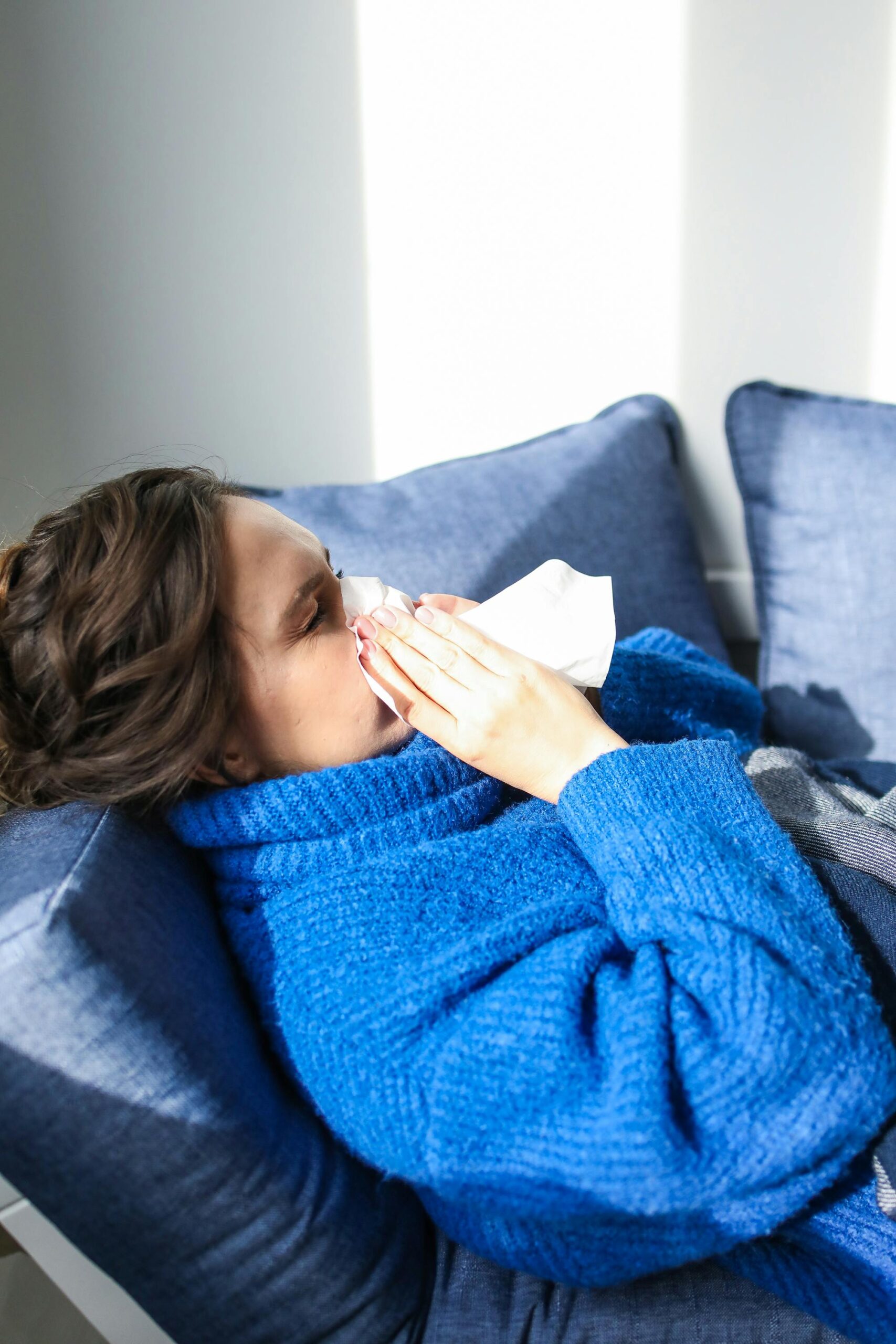There are several holistic remedies for perimenopause and postmenopause that can alleviate the challenging physiological and psychological effects. During this time, changes in estrogen, progesterone and testosterone require thoughtful nutrition, supplement, and lifestyle strategies in order to mitigate symptoms and make the transition easier. With the right plan in place, women can minimize their suffering and feel like their best selves, even as they age.
What happens during perimenopause & menopause?
Perimenopause is the time period that leads up to menopause when hormonal fluctuations and associated symptoms start to occur. Menopause is the one year anniversary of when you had your last period. After that day, you enter post-menopause.
Most women begin perimenopause around age 50, give or take 5 years. Perimenopause typically lasts 7 years, but it can last significantly longer. During this time, the ovaries gradually stop producing hormones. Even though the adrenal glands attempt to take over hormone production, they are unable to produce adequate amounts.
As a result, sex hormones including estrogen, progesterone, and testosterone decline. Ovulation and the menstrual cycle become irregular. These hormonal changes trigger negative symptoms, including:
- Weight gain
- Insulin resistance
- Trouble sleeping (insomnia)
- Hot flashes
- Brain fog
- Acne
- Hair loss
- Decreased sex drive (low libido)
- Decreased bone density (osteoporosis)
- Mood disorders (anxiety or depression)
- Vaginal dryness or discomfort
- High cholesterol
Nutrition for perimenopause & menopause
- Eat a high-protein diet.
There are several reasons why increasing consumption of high-quality protein-rich foods is important and beneficial for perimenopause and menopause. First of all, protein is extremely satiating. It increases the feeling of fullness, which can help regulate appetite. Secondly, protein has a higher thermic effect, so it increases metabolic rate slightly more than other macronutrients. Both the satiety factor and higher thermic effect can aid in weight management. Moreover, protein helps to build and maintain lean body tissue. Muscle requires slightly more energy to maintain, improves insulin sensitivity and benefits body composition. Muscle declines with age, and this negatively impacts metabolism. In addition, amino acids – the building blocks of protein – are also integral to various other body functions, including digestion, immunity and neurotransmitters.
As you can see, protein is extremely important to boost both internal health and external appearance. The best sources of protein are animal-based foods such as poultry (chicken, turkey), red meat (grass-fed beef or bison), eggs, and fish/seafood (salmon, tuna, sardines, shrimp, etc.). Dairy products such as Greek yogurt or cottage cheese are excellent sources of protein as well, if you can tolerate them well. Organic soy, such as tofu, tempeh or edamame are great sources of plant-based protein. For vegans, hemp seeds, black beans and quinoa can help boost protein intake. While whole foods are always preferred, protein powders can be helpful if there are time constraints or diet restrictions.
- Balance your blood sugar.
Balancing your blood sugar is important throughout the lifecycle, but it’s particularly critical around menopause. Hormonal changes around perimenopause and menopause, particularly the decline of estrogen and progesterone, lead to decreased insulin sensitivity. Insulin resistance results in poorly regulated blood glucose – contributing to weight gain, energy dips, and brain fog. Here are our top tips for keeping blood sugar balanced:
- Make sure that every meal contains protein, fat and fiber. Good protein sources, as mentioned above, include animal foods (meat, poultry, fish/seafood, eggs), dairy (Greek yogurt or cottage cheese), or legumes (e.g. organic tofu, peas, beans). Healthy fats are plant oils (olive, avocado, coconut), avocados, nuts and nut butters, seeds and seed butters, olives, ghee, egg yolks and fatty fish (salmon, tuna, sardines). Fiber is found in minimally processed plants with the stems, seeds and skin – particularly vegetables, fruits, whole grains, nuts, seeds and legumes.
- Reduce added sugar in the diet. This includes any substance that is added to food purely for the purpose of sweetening it. This includes all sugar (yes, even organic coconut sugar), honey, agave and syrup. Sugar that is found naturally in foods such as fruit is okay as long as it is consumed within a balanced meal containing fat and protein.
- Keep a regular eating schedule where you are consuming a balanced meal every 3-5 hours. Avoid skipping meals; be sure to eat breakfast, lunch and dinner. Caution with intermittent fasting as it often puts extra strain on your already overworked adrenal glands (see section below on stress management and why that’s important).
- Consider using a continuous glucose monitor (CGM) to get a better sense of your current blood sugar management and learn how to optimize it. We love the Veri app, which can help you pinpoint which meals and habits help stabilize your glucose. Use this link for $30 off your subscription.
- Add broccoli sprouts and ground flaxseed.
Broccoli sprouts and ground flaxseed are two of our favorite functional foods when it comes to supporting healthy estrogen levels. Broccoli sprouts are rich in sulforaphane, which is important for phase 2 of liver detoxification – and therefore helps to support proper estrogen metabolism. In addition, it boosts several antioxidant-supportive genes, including glutathione – our body’s master antioxidant. This helps fight free radicals, thus reducing oxidative stress and damage. Sulforaphane does not lower estrogen like DIM or I3C can – which is important because, with menopause, we want to be wary of lowering already declining estrogen levels.
Meanwhile, ground flaxseed is an excellent addition to support estrogen levels during menopause. They contain lignans, which are phytoestrogens. Lignans have a similar chemical structure to estrogen molecules and can bind to their receptors. Their weak estrogen effect can help ease hot flashes and other menopausal symptoms. Be sure to consume ground, not whole, flaxseed since flaxseed has a tough outer shell that our bodies cannot break down. Two tablespoons daily is the recommended amount. We like to add it to smoothies, oatmeal, yogurt, or chia pudding.
- Switch from coffee to matcha.
Matcha, made from finely powdered dried green tea leaves, can be an excellent substitute for coffee to help support women during perimenopause or menopause. It is rich in potent antioxidants, particularly EGCG. This flavonol helps combat free radicals and might boost metabolism by increasing thermogenesis in the body – both of which can help combat signs of aging and weight gain. We particularly recommend matcha over coffee for those who struggle with anxiety. Matcha has about one-third the caffeine content as coffee, and it also is a rich source of the calming amino acid l-theanine. Keep in mind, however, that matcha still does contain caffeine. We suggest cutting off all caffeinated drink consumption at least 10 hours before bed to make sure that the body has adequate time to metabolize the caffeine.
Our favorite matcha brand is Pique Sun Goddess Matcha, which is 100% organic, ceremonial-grade and quadruple toxin screened. We love frothing it with unsweetened, organic almond milk and a little pure stevia or monk fruit to sweeten.
Supplements for perimenopause & menopause.
- Black Cohosh
Black cohosh has been used for centuries to help reduce perimenopausal and menopausal symptoms. This herb was originally used to manage pain and calm the nervous system, but today it is commonly used to help minimize hot flashes. Many women also report improved energy and mood while taking black cohosh, which could be related to the plant’s serotonin-like effect. We like Remifemin, which contains 20mg of the standardized black cohosh root/rhizome extract. Consider starting with one in the morning and evening for best results.
- Evening primrose oil
Evening primrose oil (EPO) is used in modern medicine to alleviate perimenopausal and menopausal symptoms, particularly hot flashes. In addition, EPO can be beneficial for treating other conditions such as PMS, eczema and breast pain. EPO contains high levels of gamma-linolenic acid (GLA), an omega-6 fatty acid that exerts an anti-inflammatory effect. We like Barlean’s Evening Primrose Oil, which is pure and unrefined. Consider doing two softgels with breakfast.
- Maca root
Maca is a Peruvian plant that is used today for a variety of conditions, including perimenopause and menopause. Maca has been shown to increase sex drive (libido), improve male fertility, relieve menopausal symptoms (e.g. hot flashes, mood swings, difficulty sleeping and irritability), and boost energy. Our favorite supplement brand for all maca products is Femmenessence because they use a scientifically proven phenotype of maca that specifically helps with women’s hormonal imbalances. We recommend their MacaLife for Perimenopause or MacaPause for Post Menopause. Take one capsule with breakfast and again at lunch, and give it time; most women notice an improvement within three weeks.
- Vitex
Vitex, also known as chaste berry, can be beneficial for various hormonal imbalances including perimenopause and menopause, polycystic ovarian syndrome (PCOS), estrogen dominance (low progesterone), and hypothalamic amenorrhea (lost period). Researchers are still studying vitex’s mechanism of action, but it’s believed to bind to dopamine and opiate receptors, protect the hypothalamus from chronic stress, and normalize prolactin levels. Vitex is best taken upon waking, when the pituitary gland is most receptive. Dosages can vary depending on whether or not the supplement contains standardized extract or dry herbs, which are less concentrated. We like Vitex 750 by Vital Nutrients. We recommend pausing the supplement for 5 days around menstruation. You should be able to tell if vitex is working for you within 3-4 months of taking it.
- Calcium (+D/K)
Bone supportive nutrients are essential throughout the lifespan, but they become particularly important once estrogen levels decline around menopause. Low bone density, known as osteoporosis, puts millions of menopausal and postmenopausal women at risk for debilitating bone fractures. Unfortunately, many women don’t even know that they have osteoporosis until they experience a bone break. It’s important to prioritize building bone density before levels peak before age 30, and make active efforts to maintain bone density after. When most people think about bone health, they just think of calcium. While calcium is important, it must be in harmony with other nutrients such as vitamin D, vitamin K, phosphorus, and magnesium. A deficiency in any of these nutrients can increase the risk of osteoporosis. We like Bone Builder with Magnesium by Metagenics, which contains all four of these essential nutrients along with microcrystalline hydroxyapatite concentrate for added support.
- DHEA
Dehydroepiandrosterone (DHEA) is considered the anti-aging hormone. It’s the most abundant steroid hormone in the body and is a precursor to testosterone and estrogen. It’s produced in the adrenal glands, but also available in over-the-counter supplements. This can be extremely helpful when levels decline, most commonly due to age or stress. Since DHEA is a hormone, essential to supplement under guidance of an experienced practitioner. It should be dosed according to lab levels. We prefer to start low, at 2mg, and gradually titrate up if needed. It’s best taken in the morning, when physiologic levels are highest.
- Bioidentical hormone replacement therapy
Bioidentical hormone replacement therapy (BHRT) is the use of compounds with the same chemical and molecular structure as hormones that are produced in the human body. This can mean natural, compounded, plant-derived, or chemically identical. Estrogen, progesterone, and testosterone are the most commonly used bioidentical hormones. There are various methods of administration, including capsules, troches, vaginal creams, pellets and patches. BHRT is a complex topic within itself and beyond the scope of this blog post. It is important to work with a practitioner who has expertise in prescribing BHRT.
Lifestyle strategies for perimenopause & menopause
- Strength training
Strength training is non-negotiable for perimenopause and menopause. A major concern for both women and men as they age is sarcopenia, or loss of muscle. Muscle plays important roles both in aesthetics and internal health. Muscle is what gives women a toned, lean look. It also improves insulin sensitivity and protects the bones – both of which are top concerns for menopausal women, as mentioned above. Resistance training involving weight-bearing exercises (e.g. dumbbells, barbells, machines or even heavy resistance bands) is essential for building and maintaining muscle mass. We help our clients develop their own personalized weight lifting programs to achieve best results.
- Optimize sleep
Trouble sleeping is one of the top complaints that we receive from our clients going through perimenopause and menopause. This is often due to the fluctuating levels of estrogen and/or declining levels of progesterone, both of which can make falling and staying asleep extraordinarily difficult. Meanwhile, poor quality sleep will negatively affect the adrenals, causing further sleep disruption and creating a negative feedback loop.
While addressing these hormonal imbalances is essential, it is equally important to control other lifestyle factors that can be negatively impacting your sleep. We have a whole blog here dedicated to sleep with actionable strategies that you can take to start improving it. We highly recommend reading it because adequate sleep will have a positive feedback loop when it comes to managing menopausal symptoms. For hot flashes specifically, we love the Eight Sleep temperature-regulating mattress pad.
- Stress management
With menopause, hormone production in the ovaries declines and the adrenal glands take over. The adrenal glands are also responsible for production of our stress hormones, such as cortisol. When stress is high, they prioritize the production of cortisol over sex hormones. So, it’s incredibly important to make sure that you are managing stress in order to prevent further downregulation of testosterone, estrogen, and progesterone. Also, cortisol dysregulation can exacerbate other symptoms of menopause such as weight gain, poor energy, and trouble sleeping. Managing stress is a highly individualized endeavor; in general, we find that the following strategies can be helpful:
- Be cautious with extended periods of fasting, as this can exacerbate cortisol issues. Most women do best with a 12 hour fasting window and can benefit from having a breakfast rich in protein (at least 25-35 grams) within 90 minutes of waking. However, there are some exceptions to this.
- No caffeine on an empty stomach; wait to have it with breakfast, and don’t exceed 200 mg (about 2 cups of coffee) daily.
- Limit high intensity interval training (HIIT) workouts; instead prioritize strength training and other lower-intensity exercises such as yoga, hiking, or pilates. Similar to fasting, there are some instances where women can benefit from HIIT; this is why it’s important to receive individualized care.
- Consider alternative stress management techniques such as acupuncture, meditation, talk therapy, nature walks, etc. We love using our Therasage home infrared sauna to unwind and detox.
Holistic Approach to perimenopause & postmenopause
These holistic remedies for perimenopause and postmenopause can ease this transition from one lifestage to the next. This time period is an opportunity to implement nutrition, supplement and lifestyle changes that will not only ease symptoms – but set the stage for graceful aging. We have helped hundreds of women through these hormonal changes, and many have told us that they feel better now than they did when they were in their twenties or thirties. Getting older can be a beautiful experience if done right, and Birchwell is here to help.








